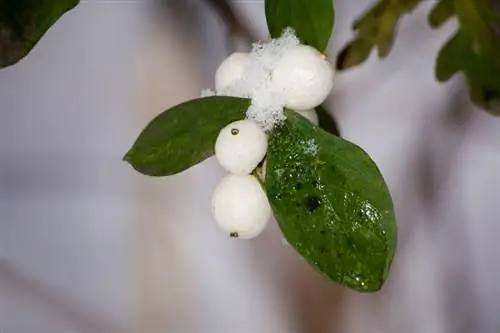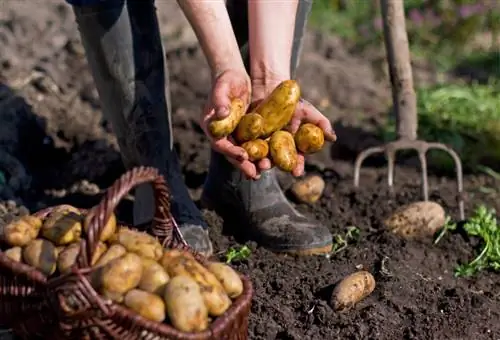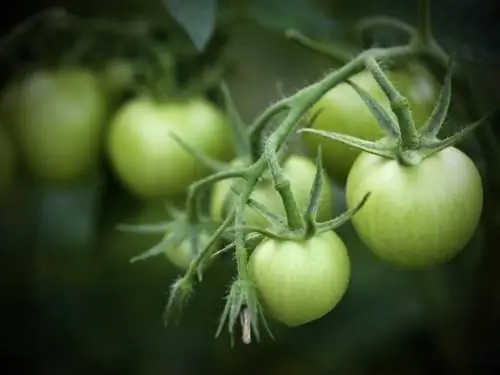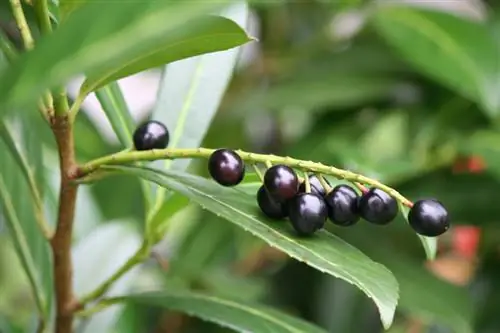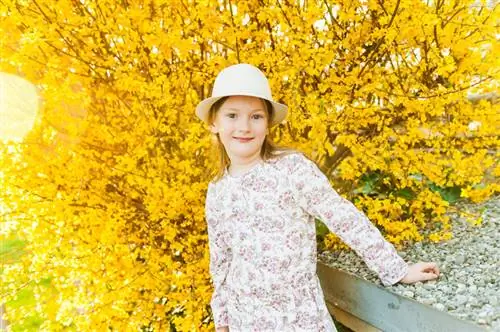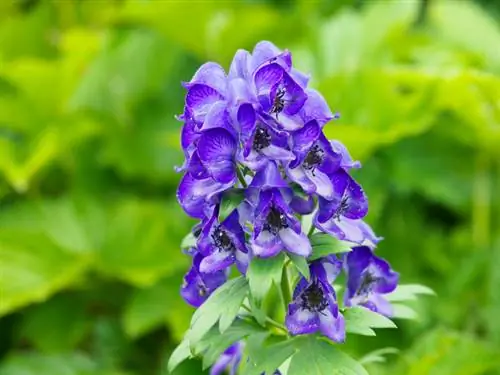- Author admin [email protected].
- Public 2023-12-16 16:46.
- Last modified 2025-01-23 11:20.
The snowberry, also known as the snap pea, is often found wild on the edges of forests and in parks. However, parents should be careful when planting these easy-care shrubs in the garden: the berries are slightly poisonous.
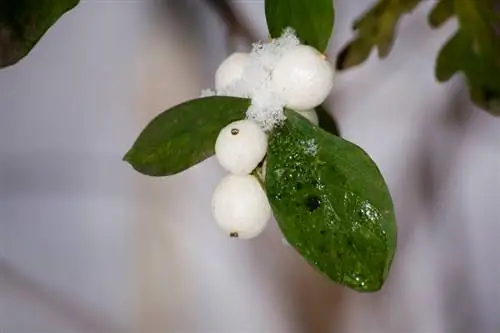
Are snowberries poisonous to humans or animals?
Snowberries (snap peas) are slightly poisonous because they contain saponins, which can cause skin irritation, nausea and diarrhea. Particular caution is required around children, rodents and horses. However, in small quantities (less than four berries), consumption is largely harmless.
Snowberries contain toxins
The fruits of the snowberry are slightly poisonous. They contain saponins and other unknown substances that can be harmful to humans and some animals, such as horses.
The berries should not be cracked with bare hands as the plant juices can cause skin irritation in sensitive people and children.
If snowberries are eaten, a maximum of four berries is considered safe. Larger amounts cause nausea and diarrhea. The saponins are also suspected of attacking the stomach lining.
Initiate detoxification if you eat more than ten berries
The information center against poisoning recommends inducing poisoning if you ingest ten or more berries:
- drink lots of water or tea
- never give milk
- Administer charcoal tablets
- Visit a doctor or hospital
Be careful with small children, rodents and horses
Children love snowberries because the mostly white berries make a loud bang when they are cracked or thrown on the ground. This is also what earned them the name cracking pea.
As much fun as the popping sound is, parents need to be vigilant when there are popping pea bushes on the property or within easy reach of small children. Children should be prevented from eating the berries or cracking them with their hands.
Snowberries are also poisonous for some rodents such as hamsters and rabbits. In horses, consumption can cause stomach problems.
Tip
The fruits of the snowberry are popular with numerous bird species. Decorative shrubs should therefore not be missing in natural gardens and natural hedges.

